
Joon-seop's Mother
A famous writer, Lee Joon-seop, returns to his hometown to attend his mother's funeral. Lee's illegitimate niece, who has been ostracized from the family, has also returned home for the funeral. While the funeral ceremonies take place, various old family conflicts reassert themselves. During the action of the story, a parallel children's story written by Lee is read by the illegitimate niece. The story describes a grandmother who gives her life force to her growing granddaughter, resulting in the grandmother becoming gradually younger until she reverts into an infant and finally leaves for the next world.
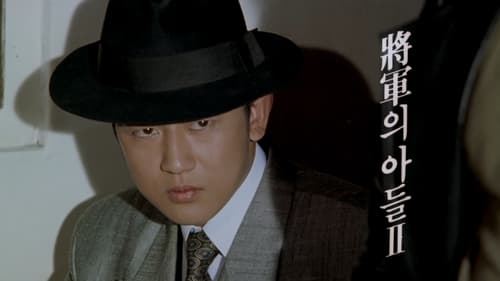
The General's Son is set during the Japanese occupation of Korea, when the oppression of the imperial rulers is escalating in the streets of Seoul. Starring Park Sang Min (Tube) and Shin Hyun Jun (Face), The General's Son is a winning mixture of fast-paced action and colonial Korean realism, which helped the film become one of the biggest domestic hits of the 1990s.

No Lady

Near the end of the Chosun Dynasty, a vagabond named Eok-swoi wandered over all of Korea. In the end, Eok-swoi settles in a remote village where he becomes the servant of Magistrate Ahn, a man of influence. Eok-swoi engages in an innocent love with Keum-sun, a maiden servant of Ahn. Though he is over the age of 50, Ahn is still childless. He treats his young second wife badly and finally, he turns his eye to Keum-sun. After being alone night after night, the young wife unintentionally starts an affair with Eok-swoi which Ahn discovers. Out of guilt, Keum-sun had rejected all of Ahn's advances to the end. She runs away with Eok-swoi. Afterwards, Ahn becomes disabled and deeply repents his wrongdoings.

Dr Han rapes his lab assistant one night. Rather than go to the police, the victim keeps quiet only bringing up the subject months later to inform the doctor that she is pregnant. Her attempts to blackmail him lead to her accidentally falling off a cliff. However, her ghost will not allow Han to forget his crimes.

Deok-bo intends to fight his Eun-swi for the love of Bon-hie, but he is impressed by his rival's manly strength upon meeting. They become very close friends. Bun-hie, who was hoping to make Eun-swi an upstanding citizen is furious that he now spends all of his time Deok-bo. She decides to murder her former admirer-turned-rival.
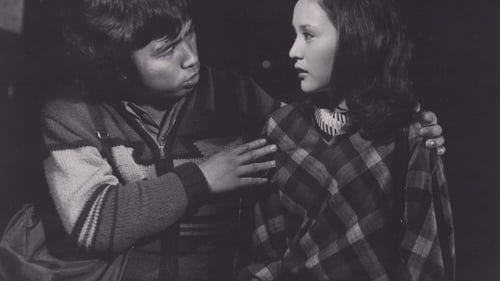
Byung-tae's mother
Byung-tae joins the army after being dumped by Young-ja. With two months until discharge, Young-ja comes to visit him. She sends him a letter saying she'll never forget him and that she was marrying Ju-hyuk, a doctor.

The hostess Oh Hak-ja has not experienced true love yet. Though outwardly, Hak-ja seems to distrust men, she earnestly thirsts for love. Hak-ja tries to find true love with a young man named Ji Suk-wu but he betrays her. Promising to meet again, Suk-wu goes abroad but Hak-ja falls into despair when he doesn't return.

North Korean agents are sent to Seoul to disrupt the visit of important international dignitaries.

A mummy is found at a construction site, which is presumed to be made in Jo-Seon Dynasty period. It is transferred to Seoul and to be kept in Lee Dong-Hyeok's, an archeologist due to the state of the museum in the university. On that night, his wife's behavior is so strange. Knowing that his wife is not cured by the modern medical science, Dong-Hyeok gets help from Professor Yu, a psychicist. Yoo finds out the mummy is In Yeon-Ryong, who was killed on a false charge by Seon-Jo 3oo years ago. Dong-Hyeok makes every effort to return his wife to the normal condition.


Four short stories examing the lives of women in the last 18th and 19th century Story 1: 'Wives Should Be Submissive'--A father tries to marry his daughter into a wealthy family. Story 2: 'A Daughter-In-Law Is No Better Than A Stranger'--A woman thinks that her daughter-in-law has turned her son against her so she tries to kill the younger woman. Story 3: '7 Grounds For Divorce'--A wife begins an affair with her servant because of her husband's impotency Story 4: 'Prohibit Sex In Court'--A concubine's life is at risk when it is revealed that her infant child is not the king's.

When Korea Highway Corporation is about to destroy the grave of O Gong-nyeo, the locals oppose the idea because they are worried of the legend of the grave. Heo, an engineer in charge of the construction, checks into a mountain lodge to investigate the legend. One night, he listens to O Gong-nyeo's grudge-filled story in his dream. However, he is too obsessed with his investigation and has been hallucinating. At last, he leaves the lodge and insists that the absurd legend is nothing but a superstition. He boldly pushes forward the construction project.

Chul-hoon's mother
The movie begins with the mysterious death of a journalistic photographer named Kim Cheol-hun. Veteran police detective Park (Kim Seung-ho) teams up with a young, intellectual detective (Kim Seong-ok) to investigate the people surrounding Kim.

A woman hires a male cook, being afraid that her lewd husband may have an affair with a female cook. Hyeong-gu who thinks about how to collect money for his brother's research starts working in her house. While he serves as a cook there, a lot of funny episodes happen. Finally, his brother finishes his research successfully and he gets out of the house to work for his brother's company as a managing director. He also gets married to a cook maid of the neighbor at the next door. It turns out that the maid is the daughter of the land lore, not a hired servant.

An old member of Namsadang (a wayfaring group of Joseon Dynasty (1392-1910)) leaves his daughter Gye-yeon at a tavern of Hwagye Market, a traditional market located in Gurye, Jeollanam-do. Son of the tavern owner Seong-gi and Gye-yeon love each other, but the madam owner tries to separate them by sending Seon-gi to a temple. The old man comes back to take Gye-yeon and disclose a secret that the tavern owner is in fact his daughter, therefore Seong-gi is his grand son. Frustrated to hear that he cannot love Gye-yeon, Seong-gi goes for a long journey without destination as his ancestors of Namsadang have done.

Sook-kyung, the youngest tomboy princess, loves playing hide and seek with her same-aged court ladies and is extremely curious about the life outside the palace. An opportunity comes for her on queen mother’s birthday celebration. Princess Sook-kyung gets to explore the outside world with the help of her older sister princesses and falls in love with a Seonggyungwan scholar she meets coincidentally. The variety of character twists in this film which is reminiscent of romantic comedies such as Roman Holiday and Shakespeare’s Twelfth Night. The queen mother with a fancy royal costume but wears glasses because of her poor vision, and the court ladies who protect the princess day and night are usually slow and doze off but have the strength to push against male henchmen. The princes outside the palace walls seem like that of a naïve country girl who eats a rice cake at the marketplace because she thinks it’s free.
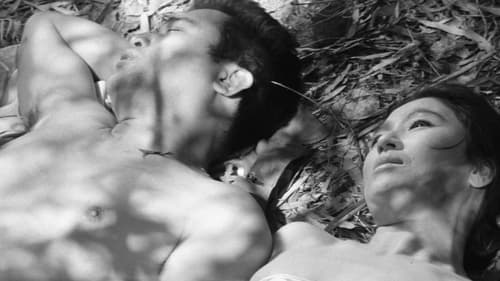
Ms. Shim [Jum Rye's mother-in-law]
In this melodrama, a man in a village in Jirisan hides a Communist soldier who has sneaked into the area. A widow, finding the soldier in the bamboo grove, visits him and carries on a sexual relationship with him. Then she discovers she is pregnant...

CHOI Eun-hee’s directorial debut The Girl Raised as a Future Daughter-In-Law is the story of ups and downs of a future daughter-in-law who, due to poverty, married an infant rich groom. A ruined widow’s daughter Jum-soon has no time to rest, as her mother-in-law treats her like a maid, leaving her with all the kitchen chores, house cleaning, grinding grain, and sewing, while the mother-in-law smokes a pipe and nitpicks on her. What allows Jum-soon to endure is her ‘duty as a woman’ taught to her since young and her child husband’s lovable yammering.

Deaf Sam-yong is a 1964 South Korean film directed and produced by Shin Sang-ok. It is based on the 1925 short story of the same title by Na Do-hyang and revolves around the story of a deaf farm hand who is in love with a landlord's daughter-in-law.

Na Gwan-joong's mother
South Korean Air Force pilots engage in perilous missions against Communist North Koreans during the Korean War.

When two wives realize that their wealthy and otherwise upstanding husbands have mistresses, they invite the 'other women' to stay in their houses for awhile. Realizing that they are breaking up happy families, the girls eventually agree to give up the married men.

La viuda de un noble tiene un hijo después de un romance con su sirviente. Tanto el sirviente como el bebé son expulsados de la casa cuando la verdad se descubre. (FILMAFFINITY)

Based on the traditional story of a girl who makes her blind father see by donating 300 bags of rice to Bongwon Temple.

Mrs. Shin
Prince Yeonsan-gun turns into a tyrant out of grief for his mother's death. He orders beheadings of all the officials who displease him or who advised the previous king to depose the queen. He becomes crueler by the day. But in 10th year of his reign, he is kicked out of the throne and dies a tragic death.
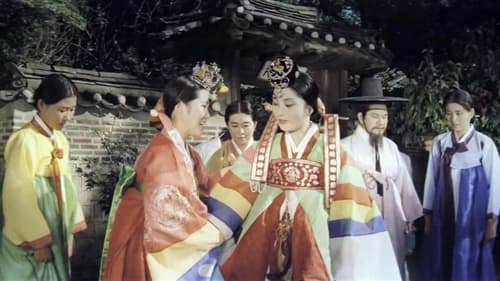
Mrs. Shin
A historical drama about Yeonsangun of Joseon as a prince trying to restore the status of his mother, the deposed and executed Queen Yun.
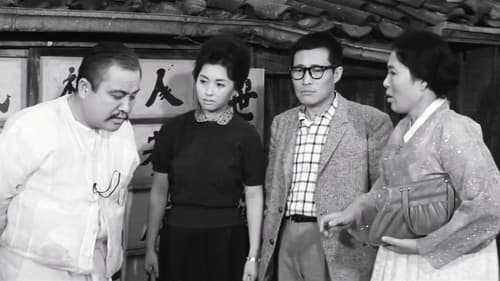
Jo Geum-sun (Hak-gyu's wife)
An oriental doctor Kim Hak-gyu is a cantankerous man who is the longest-term householder in a small village in Seoul. He often causes domestic trouble by being nasty to his wife and his children. Kim Hyeon-ok, a daughter of a young widow who runs Nahana Beauty Shop, is in love with Choi Du-yeol, an obstetrician across the street. Kim Hak-gyu has great distaste for western medicine, and at the same time, is jealous of the obstetrician. He always gets in the way of Choi Du-yeol. Kim's son, Hyeon-gu, dates Jeom-ryae, a daughter of a bar owner.
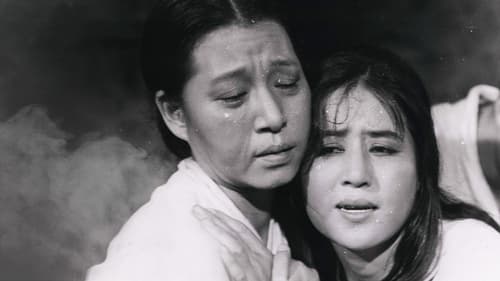
Won Jae
Yeong-shin (played by the Choi Eun-hee–Shin Sang-ok’s wife) and Dong-hyeok (Shin Yeong-gyun) graduate from college with a cause. They plan to bring education and modernization to farmers living in the rural area of their birth. When they arrive, the pair immediately gets to work, Dong-hyeok builds a village hall and starts aiding the farmers while Yeong-shin tries to gather the children to form a school. However, the villagers at first resent and resist the pair. It is not until one child, Ok-bun, takes the inititive and and learns to read under Yeong-shin’s care that the villages trust the pair and allow their children to be taken from the fields and taught reading, writing and math.

Grandmother
Six-year-old Ok Hee is glad when Mr. Han comes to board at her house full of women. She plays messenger for Mr. Han and her widowed mother as they quietly fall in love, but is her support enough to guard their love?

Mother
A poor boarder inherits 30 million dollars from an American soldier whose life he saved during the Korean War. The stingy landlady instantly turns into a completely different person, women swarm around him, and charities ask him for donations. Gangsters come forward and try to kill him...

Weolmae - Chun-hyang's mother
Chun-hyang, the only daughter of an old gisaeng named Wolmae, falls in love with Lee Mong-nyong and promises to marry him. But Lee leaves for Seoul with his father who's an aristocrat, and the new governor, Byeon Hakdo, covets Chun-hyang because she is the most beautiful girl in town. When Chun-hyang rejects his order to serve him at night, Governor Byeon sends her to jail. In the mean time, Lee passes the state exam and becomes a special undercover agent of the king. He comes back to where Chun-hyang lives to save her and punishes Governor Byeon
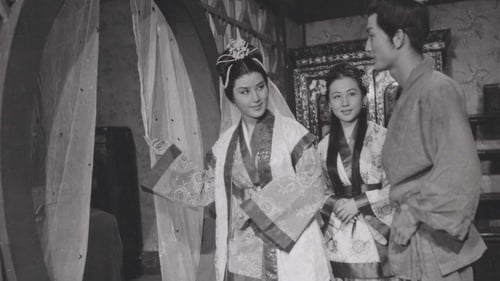
Cheong-ah / Blue Snake
A thousand-year-old snake that has transformed itself into a human, Madame White Snake (Choe Eun-hui), falls in love with a young pharmacist named Heo-Seon. Although they encounter difficulties, they are wed, and their love for each other does not change. However, Beophaeseonsa (a Zen priest) and Gwaneumbosal (the Buddhist goddess of mercy) order Madame White Snake, who had transformed into human without being granted permission to do so, to return back to the world of the gods before July 7. Grieving, she prepares to say goodbye to her beloved husband. But before she can return to the world of the gods in time, she falls into a trap set by Dae-yun (Choe Sam), who is attracted to her. Because of the trap, she is not able to keep the promised deadline, and ends up risking her life to save her husband.

Heo Seung, quien afirma que "nació del suelo, vivirá en el suelo y morirá en el suelo", se convierte en abogado en Seúl. Sin embargo, cuando los aldeanos de su ciudad natal son encarcelados por protestar contra la opresión japonesa, decide regresar a su aldea y redescubre la verdadera forma de ayudar a su país.

Mrs. Kang
Dr. Nam, in his will, requests that his eldest daughter, Jeong-hui(Choe Eun-hui), marry a painter named Dong-su (Nam Gung-won). Jeong-hui is at risk of losing her house due to her father's debt, and a young physician Sun-cheol (Kim Seok-hun) who received his college education with the financial support of Dr. Nam, helps her by selling his own house. Despite his love for her, Sun-cheol cannot express his feelings because he knows of the request in her father's will. When Jeong-hui looks for a job to support her family, Bang, whom Dr. Nam once cured, offers her a position of saloon madam. Meanwhile, her younger sister Myeong-hui (Choe Ji-hui) promises Dong-su her hand in marriage. Jeong-hui, now running the saloon, wishes them happiness. It is only when she gets a proposal from Bang and decides to accept it that Sun-cheol confesses his love for her. Moved by Sun-cheol's true affection for her, Bang gives her up, and Sun-cheol and Jeong-hui exchange vows of marriage.

Mrs. Park (Mother of Okju)
Lee Suk-hui (Choe Eun-hui) lost her husband to the Korean War eight years ago. She runs a dressmaking shop that has fallen into debt. When Kim Sang-gyu (Kim Jin-gyu), the executive director of a publishing company, helps her pay off debts, she falls in love with him. He, however, is engaged to the daughter of his boss, Ok-ju (Do Geum-bong). His sister (Ju Jeung-nyeo) pushes him to marry the boss's daughter, hoping that will bring him rapid success. Meanwhile, Suk-hui's grown-up daughter Gyeong-hui, wanting her mother to be happy, urges her mother to marry Sang-gyu, but Suk-hui vacillates between social mores and her own happiness. Even though she and Sang-gyu truly love each other, she decides to leave him and heads for her country home after selling her house in Seoul. Hearing the news, he who is ill in bed hurries to Seoul station, but it is too late. All he can do is just to stand on the platform and to watch her train pulling away.

This film is about of the life of the young patriotic martyr Yu Gwan-sun, who fought for the liberation of her country during the Independence Movement in 1919. As the Independence Movement becomes more and more intense among Korean students, the Japanese authorities order schools closed temporarily. Yu Gwan-sun (Do Geum-bong) persuades her neighbors to join the national movement, and continues her aggressive struggle against Japanese rule. An independent campaign at Aunae, a market site, is successful with the passionate participation of many people. She is arrested by the Japanese police for leading the campaign and has to endure horrible tortures. But she never gives up her fight, encouraging her cell mates to participate in the movement. She is finally taken to an underground room by the Japanese police and murdered.

Asanyeo
On the eighth of April of King Gyoeng-deok's 10th year of the reign of the Unified Silla Period, Guseulagi, a daughter of Yu Jong, joins the king's parade to Bulguksa Temple, where she meets a stonemason named Asadal from Buyeo. Having a crush on him, she visits Sakyamuni Pagoda, a masonic site; only to find that Asadal had broken down from exhaustion. While she takes care of him, her love for him grows. But Asadal misses his wife who is waiting for him in Buyeo. Meanwhile, Geum Seong who has a crush on Guseulagi, asks his father, Geum Ji, to propose on behalf of him. But Yu Jong is so dissatisfied with Geum Ji because he is a treacherous subject, that he turns down the proposal, instead of hurrying up his daughter's marriage with Gyeongsin, a faithful subject. Asanyeo who has been waiting for her husband Asadal in Buyeo goes to Bulguksa Temple after her father-in-law had died.

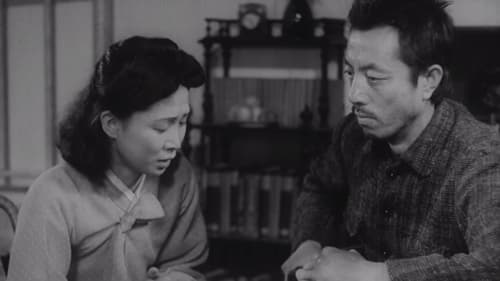
Hurrah! For Freedom (aka Viva Freedom) is a 1946 Korean film directed by Choi In-kyu. It was the first film made in the country after achieving independence from Japan. During the country's occupation Choi was only allowed to make Japan-friendly films, but the plot of Hurrah! For Freedom is distinctly different, telling the story of a Korean resistance fighter in 1945.


Young-chae Park
Based on the novel of the same title by Kwang-Soo Lee (Yi Kwang-su), published in 'Maeil Shinbo' in 1917. The plot is based on the relationship of three young people - English teacher Hyeong-sik Lee, dancer Young-chae Park and Hyun-soo Kim, the daughter of a wealthy presbyter. Left an orphan in early childhood, Hyeong-sik was brought up in the house of Master Park. From childhood, Park predicted his daughter Young-chae as Hyeong-sik's wife. Master Park was a patriot, and when the Japanese invaders came to power, he was illegally convicted and imprisoned. His daughter Young-chae became a kisaeng to earn money to send packages to the prison. At this time, Hyeong-sik and Young-chae are moving away from each other, and Hyun-soo appears in the life of Hyeong-sik, whom he fell in love with and is going to marry her.



































